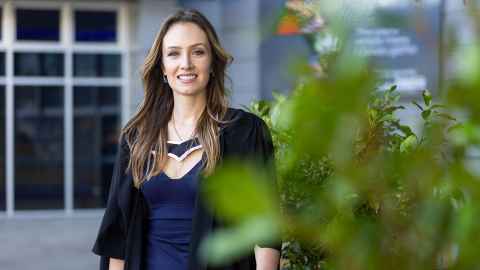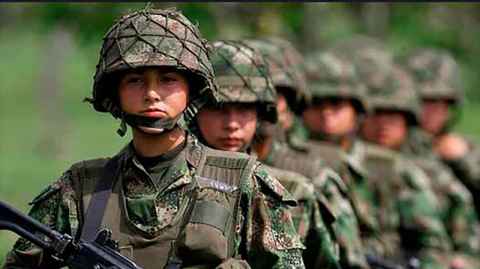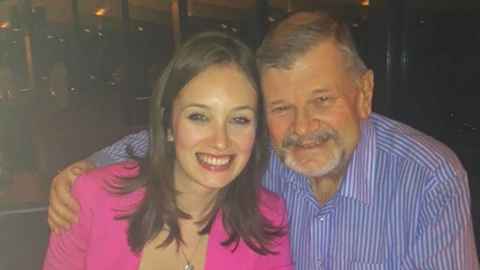Females on the front line: graduate looks at women after conflict
29 September 2022
The fate of ‘bush wives’ in Sierra Leone and female soldiers in Colombia was the focus of Faculty of Arts student Laura Allen, who is graduating with a Master of Conflict and Terrorism Studies.

“Conflict happens all over the world at all sorts of levels, so this degree is relevant everywhere,” says Laura Allen, who has come back to Auckland from her current home in Los Angeles to graduate with a Master in Conflict and Terrorism Studies from the University of Auckland's Faculty of Arts.
Laura looked at the way gender constructs – how certain societies expect women (and men) to behave – create barriers for women's access to post-conflict resources; specifically, those funded by the United Nations under the ‘disarmament, demobilisation and reintegration’ (DDR) programmes.
“We know that women are disproportionately affected by conflict. I wanted to understand if, and how, gender impacted their access to post-conflict resources. While I expected that would be the case, I went into it with an open mind; you have to be ready to be proved wrong.”
Her case studies on groups in Sierra Leone and Colombia found that not only were women unfairly treated, some policies explicitly excluded them.
“In Sierra Leone for example, [where civil conflict raged throughout the 1990s, with an insurgent rebel army fighting the government for a decade] getting financial support after demobilising from an armed group required surrendering a gun, and most women hadn’t been armed.”
She says former female combatants were also often shunned by their communities because they’d performed in what was considered a masculine way, against gender norms.
“And then there were some women who chose not to accept the resources because they didn’t want to draw attention to their participation in the conflict.”

Meanwhile, in other situations, Laura says these programmes were offering former female soldiers very traditional roles, doing low-level labour like cleaning for example, when they might previously have been a military commander making important decisions on the battlefield.
And with the withdrawal from Afghanistan, which happened while she was studying, and the war in Ukraine since then, if Laura were to further her studies she would definitely be applying her findings to these situations, she says.
“The organisation UN Women is already talking about the disproportionate impact of the war in Ukraine on women, and of course we’ve seen what’s happened to the rights of women in Afghanistan since the Taliban took back control.”
Laura’s Sierra Leone case study looked at ‘bush wives’, the term for girls as young as 12 kidnapped by rebel armies and made to live in appalling conditions as the ‘wives’ of soldiers and commanders.
“They had to serve their so-called husband’s domestic and sexual needs, sometimes for years,” says Laura, “but post conflict, these girls often couldn’t access resources because they hadn’t actively been soldiers. They also then faced being stigmatised, with many being rejected by their families as ‘damaged goods’.”

Laura came back to study after completing a Bachelor of Arts with a double major in sociology and art history, and a Bachelor of Arts Honours in sociology at Auckland, and then spending eight years living and working in London.
"It was a different experience to the first time around. Everything was digital and online, so I had to get my head around that new way of working.”
She says this particular programme hadn’t been an option when she was last a student.
“As well as the topic, it just seemed right for my style of learning, working in smaller peer groups and being able to immerse myself in the course, despite the problem of lockdowns. It’s expertly constructed in terms of its usefulness for students; all the available options complement each other.
She really enjoyed the classes and learned a huge amount.
"I'm a big fan of lecturer Dr Tom Gregory's work in the field of conflict and terrorism studies, and as my supervisor, I also found him so helpful."
Anyone considering the course, she says, should prepare themselves to read and talk about some tough world issues, including the death of children in war zones.
“Some of the things we looked at in Tom’s ethics class were quite difficult; sometimes I had to just step away and go for a walk. But if you’re going to do a programme like this, I think you have to say, ‘I choose to have the knowledge and do something with it’; and that’s the potential it has to really drive change.”
There are still ideas about what a woman can and can’t be, and how we’re socialised to do one thing and not another; not to negotiate salary for example. Having women in decision-making roles is so important for policies that affect women.
And while we are lucky enough not to have war waging on our streets, there are plenty of issues in New Zealand we might be privileged enough not to have seen or lived, and where we can make a difference, she says.
“There is always something on your doorstep you can do."
Laura's current US-based job at Rock-it Global (logistical specialists in delivering artists’ multi-national tours) is in line with her ambition to have a positive impact on people and the planet, as well as utilising her research skills.
“It’s actually a newly created role in the area of 'environmental, social and governance' (ESG). It’s exciting to be part of a company’s continued commitment to operating sustainably, and being focused on environmental impact, diversity and inclusion in this high impact, high profile industry; sometimes it can be as practical as removing plastic water bottles at concerts and replacing them with reusables, for example.”
Barriers for women obviously also exist in corporate settings, she says, so she knew the results of her research were transferrable into other areas.
“There are still ideas about what a woman can and can’t be, and how we’re socialised to do one thing and not another; not to negotiate salary for example. Having women in decision-making roles is so important for policies that affect women.”
She says living in the US when Roe vs Wade was overturned had a surprisingly big impact on her emotionally.
“I found myself quite moved by it and passionate in my discussions about the way the world, and policy, can impact women's lives and bodies, and make decisions for them.”
Laura will be graduating with her proud mother Margaret Crannigan Allen, a longtime University staff member and believer in higher education, in the audience, and thinking of her late father Graham, “a voracious reader”.
“He always said, ‘Read as much as you can and meet people, everyone is interesting, everyone can teach you something’. My dissertation is dedicated to him.”
Media contact
Julianne Evans | Media adviser
M: 027 562 5868
E: julianne.evans@auckland.ac.nz